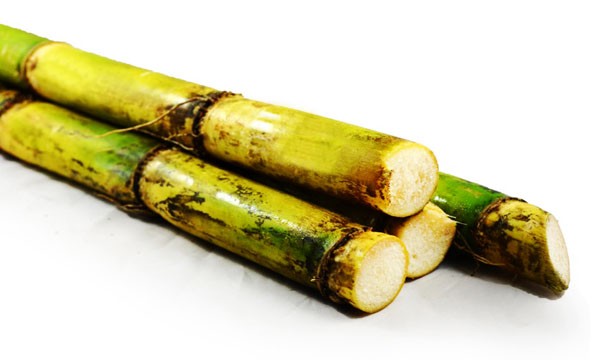Learn How Sugar and Cane Contribute to the Sweetness in Your Favorite Foods
Learn How Sugar and Cane Contribute to the Sweetness in Your Favorite Foods
Blog Article
Why Cane Sugar Processing Chemicals Are Critical for Modern Sugar Refining
The duty of walking cane sugar processing chemicals in modern-day sugar refining can not be overemphasized, as they are indispensable to boosting both the efficiency of removal and the overall quality of the last item. Representatives such as phosphoric acid and certain flocculants are utilized to get rid of pollutants, resulting in sugar that not only satisfies consumer expectations but also adheres to sector criteria.
Duty of Handling Chemicals
The efficacy of cane sugar handling hinges considerably on the calculated application of handling chemicals. These chemicals play an essential function in enhancing the efficiency and top quality of sugar removal and refining. From the preliminary stages of juice extraction to the last filtration steps, processing chemicals promote numerous important procedures.
In the extraction phase, chemicals such as phosphoric acid and calcium hydroxide are employed to maximize the explanation process, helping to get rid of contaminations and put on hold solids from the walking stick juice. This not just enhances the return yet likewise makes certain the quality of the end product. In addition, agents like flocculants help in the quick settling of pollutants, thus streamlining the total process.
As the processing advancements, chemicals are utilized in decolorization and formation stages. Turned on carbon and ion exchange materials serve to remove shade and odor, ensuring that the polished sugar fulfills customer high quality standards. Ultimately, the role of processing chemicals expands beyond functional efficiency; they considerably influence the sensory features of the final item, contributing to market competition. Thus, the thorough selection and application of these chemicals are essential for accomplishing optimum end results in cane sugar processing.
Key Kinds Of Chemicals
Walking cane sugar processing depends on a selection of essential chemicals that facilitate each stage of production. These chemicals play essential duties in clearing up, whitening, and purifying the sugar drawn out from cane.
One main category of chemicals consists of flocculants, such as polyacrylamide, which aid in the clarification process by promoting the aggregation and settling of pollutants. Furthermore, calcium hydroxide is usually employed to neutralize level of acidity and assist in the removal of non-sugar components.
Whitening agents, such as turned on carbon and sulfur dioxide, are used to decolorize the syrup, resulting in a more clear end product. These chemicals aid remove shade substances that may impact the sugar's appearance and marketability.
Furthermore, phosphoric acid serves as a pH regulator throughout the handling phases, making certain ideal problems for the chemical activities associated with sugar extraction and purification.
Various other important agents consist of edta (ethylenediaminetetraacetic acid), which chelates metal ions that can catalyze unfavorable reactions, and salt hydroxide, which aids in pH control throughout the refining procedure. Jointly, these chemicals improve efficiency and ensure a premium cane sugar item.
Benefits for Sugar Top Quality
Commonly overlooked, using particular handling chemicals substantially enhances the general quality of walking stick sugar. These chemicals play a pivotal duty in refining processes, making sure that the final product fulfills strict sector requirements for pureness and taste.

In addition, processing chemicals help in achieving a consistent granulation and structure, which are critical for customer acceptance. By controlling the crystallization procedure, these chemicals make certain that the sugar crystals create consistently, causing a much more appealing item that liquifies well in different applications.
Furthermore, making use of these chemicals can improve the life span of walking stick sugar by reducing moisture absorption and microbial development. Generally, the tactical application of processing chemicals is crucial for supplying premium cane sugar that meets customer expectations and sector demands.
Ecological Effect Considerations

Furthermore, the energy-intensive nature of sugar refining, compounded by chemical usage, commonly causes increased carbon emissions. This adds to environment change and raises issues relating to the sustainability of existing refining techniques. In addition, the sourcing of these chemicals might entail methods that endanger biodiversity, such as monoculture farming, which minimizes the durability of agricultural environments.

To alleviate these impacts, sugar refiners are progressively exploring lasting have a peek at this website choices and embracing best practices that decrease chemical use. Executing extensive environmental management systems can aid make sure that the refining process aligns with ecological requirements and promotes biodiversity. Inevitably, a balanced approach that focuses on both sugar quality and ecological stewardship is necessary for the long-lasting viability of the sugar market.
Future Trends in Refining
As the sugar sector comes to grips with the environmental difficulties connected with traditional refining techniques, innovative approaches are arising to enhance both effectiveness and sustainability. One substantial trend is the fostering of green chemistry principles, which focus on the usage of safe, naturally degradable handling chemicals. This shift not only decreases environmental impact however additionally addresses consumer demand for cleaner manufacturing techniques.
One more encouraging development is the implementation of sophisticated filtration innovations, such as membrane splitting up and adsorption processes. These strategies boost the clarity and quality of the sugar while decreasing the quantity of wastewater created throughout refining. Furthermore, the combination of digital modern technologies, including IoT and AI, is changing operational performance by making it possible for real-time monitoring and anticipating maintenance, thus reducing source waste.
Furthermore, the usage of by-products from sugar refining, such as bagasse and molasses, is obtaining traction. These products can be exchanged biofuels or value-added products, adding to a circular economic climate within the market. Collectively, these fads signify a change towards even more lasting practices that not just boost operational effectiveness yet additionally align with global sustainability objectives, guaranteeing the future click for more info viability of sugar refining.
Conclusion
Cane sugar processing chemicals are necessary in modern sugar refining, substantially enhancing the performance and top quality of sugar extraction. The strategic use these chemicals not just boosts the purity and taste of the end product but likewise ensures regular crystallization and texture. As the industry increasingly prioritizes sustainability, the adoption of environmentally-friendly processing representatives is likely to form future trends in refining, inevitably bring about better items and prolonged rack life for consumers.

Ultimately, a well balanced approach that prioritizes both sugar high quality and ecological stewardship is vital for the lasting stability of the sugar market.
Walking cane sugar handling chemicals are necessary in modern sugar refining, considerably enhancing the effectiveness and high quality of sugar extraction.
Report this page